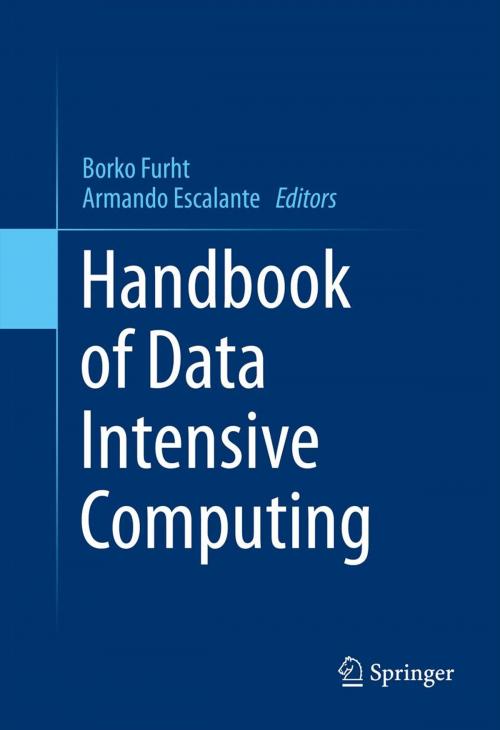Handbook of Data Intensive Computing
Nonfiction, Computers, Database Management, Information Storage & Retrievel, General Computing| Author: | ISBN: | 9781461414155 | |
| Publisher: | Springer New York | Publication: | December 10, 2011 |
| Imprint: | Springer | Language: | English |
| Author: | |
| ISBN: | 9781461414155 |
| Publisher: | Springer New York |
| Publication: | December 10, 2011 |
| Imprint: | Springer |
| Language: | English |
Data Intensive Computing refers to capturing, managing, analyzing, and understanding data at volumes and rates that push the frontiers of current technologies. The challenge of data intensive computing is to provide the hardware architectures and related software systems and techniques which are capable of transforming ultra-large data into valuable knowledge. Handbook of Data Intensive Computing is written by leading international experts in the field. Experts from academia, research laboratories and private industry address both theory and application. Data intensive computing demands a fundamentally different set of principles than mainstream computing. Data-intensive applications typically are well suited for large-scale parallelism over the data and also require an extremely high degree of fault-tolerance, reliability, and availability. Real-world examples are provided throughout the book.
Handbook of Data Intensive Computing is designed as a reference for practitioners and researchers, including programmers, computer and system infrastructure designers, and developers. This book can also be beneficial for business managers, entrepreneurs, and investors.
Data Intensive Computing refers to capturing, managing, analyzing, and understanding data at volumes and rates that push the frontiers of current technologies. The challenge of data intensive computing is to provide the hardware architectures and related software systems and techniques which are capable of transforming ultra-large data into valuable knowledge. Handbook of Data Intensive Computing is written by leading international experts in the field. Experts from academia, research laboratories and private industry address both theory and application. Data intensive computing demands a fundamentally different set of principles than mainstream computing. Data-intensive applications typically are well suited for large-scale parallelism over the data and also require an extremely high degree of fault-tolerance, reliability, and availability. Real-world examples are provided throughout the book.
Handbook of Data Intensive Computing is designed as a reference for practitioners and researchers, including programmers, computer and system infrastructure designers, and developers. This book can also be beneficial for business managers, entrepreneurs, and investors.















